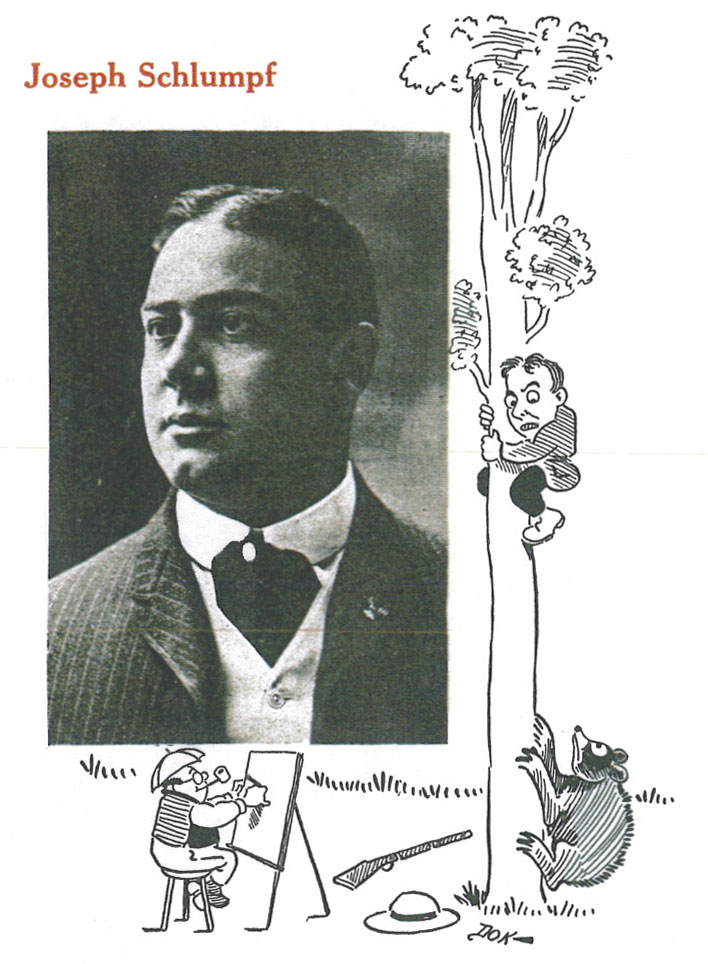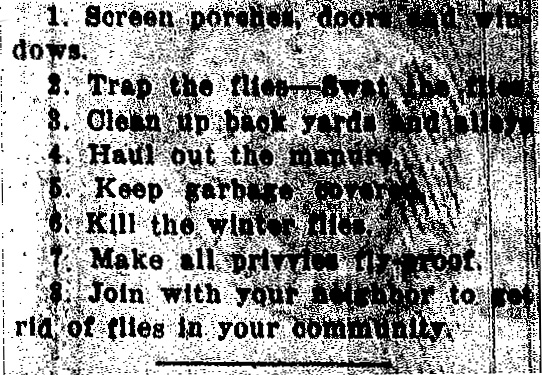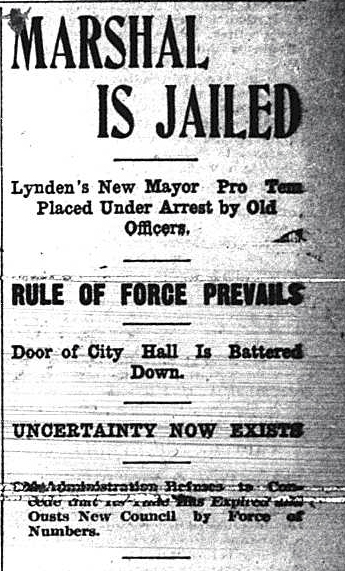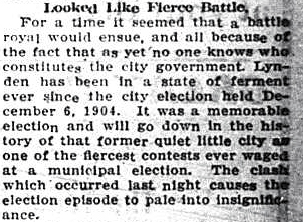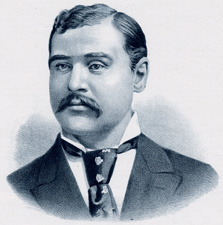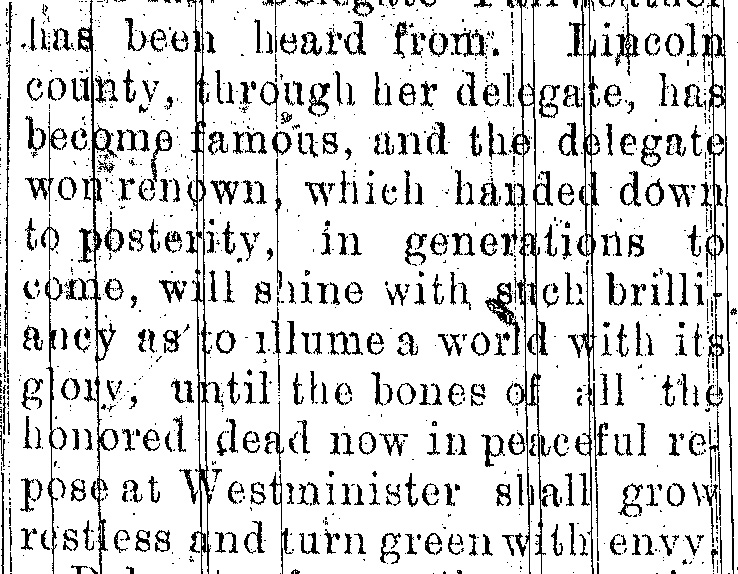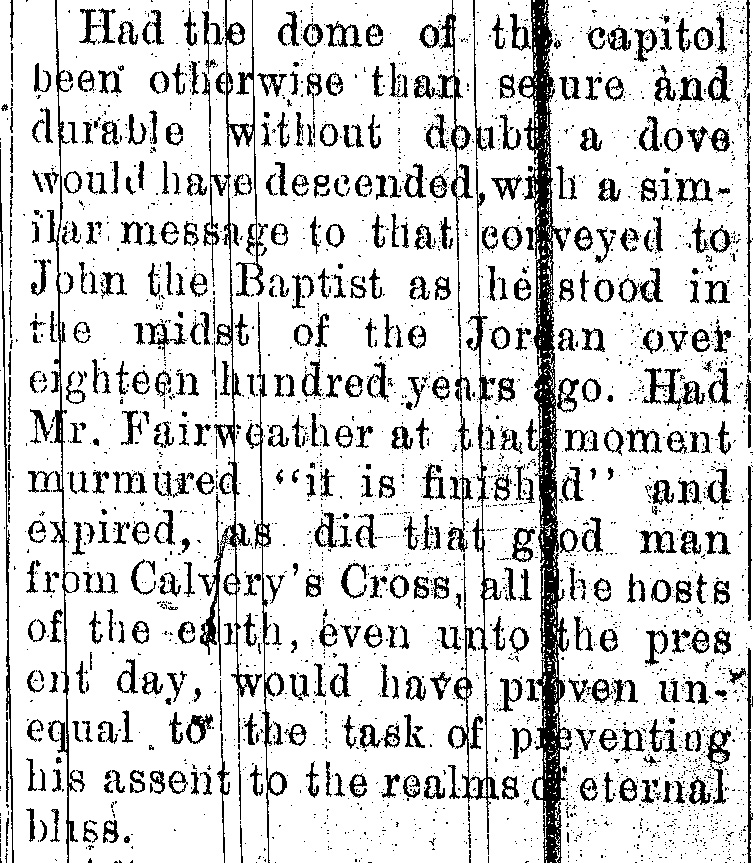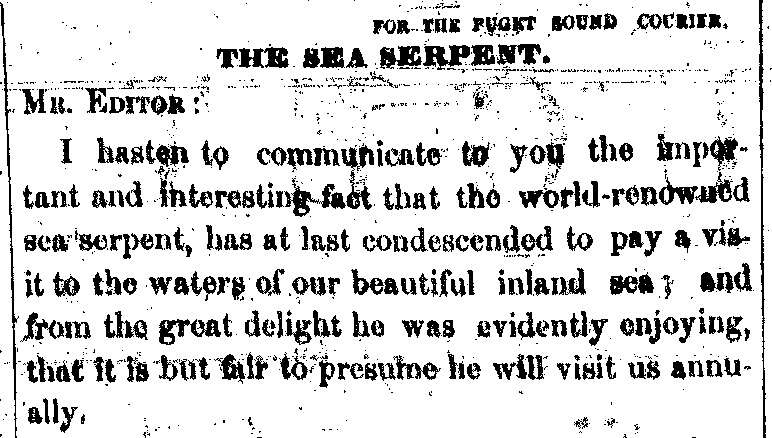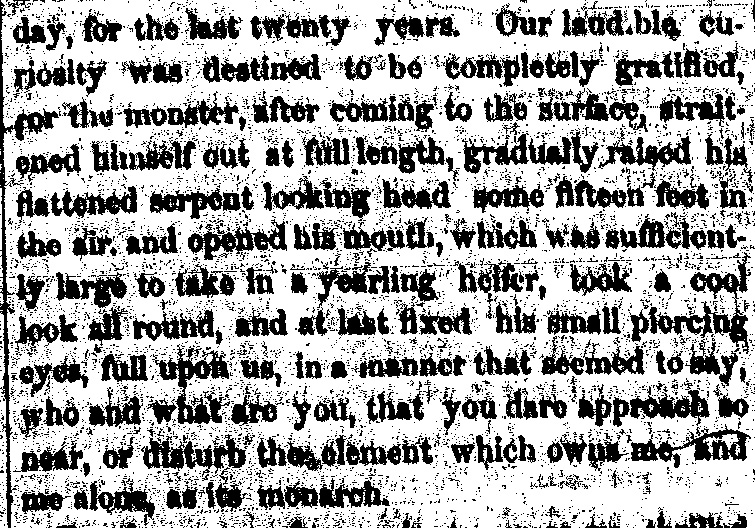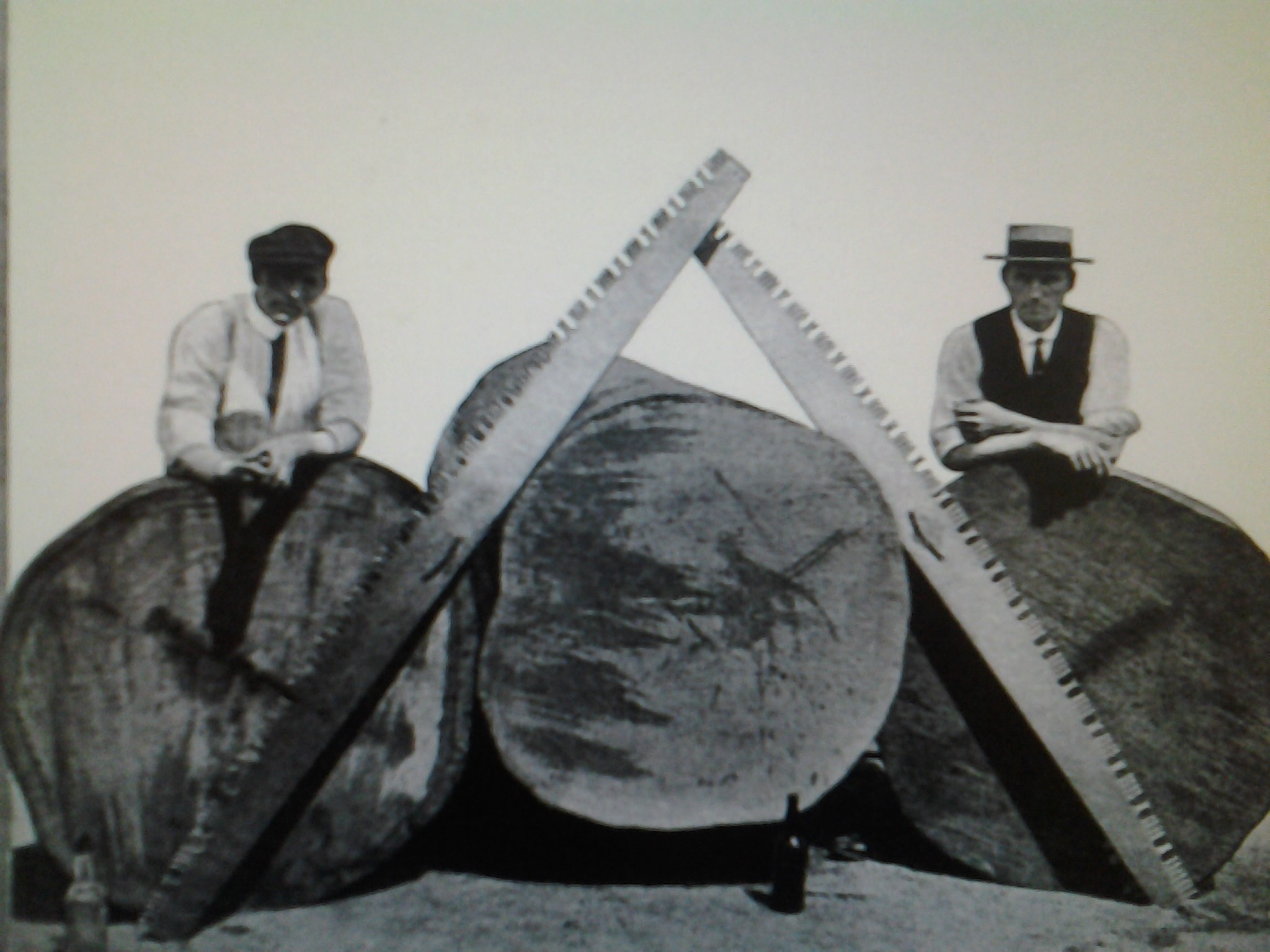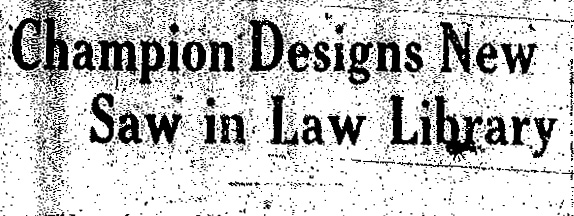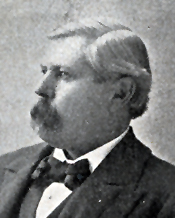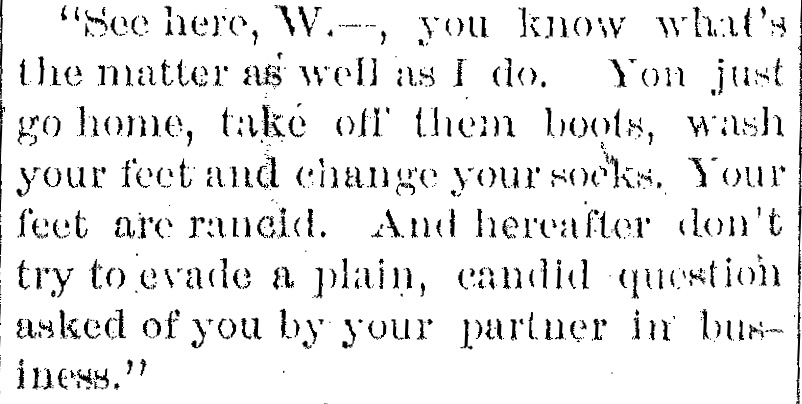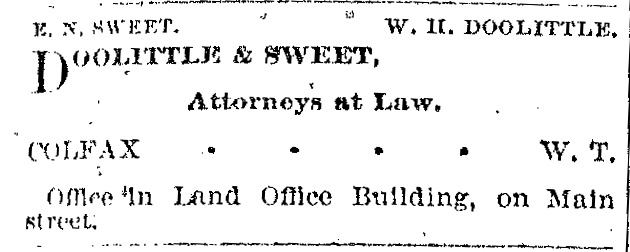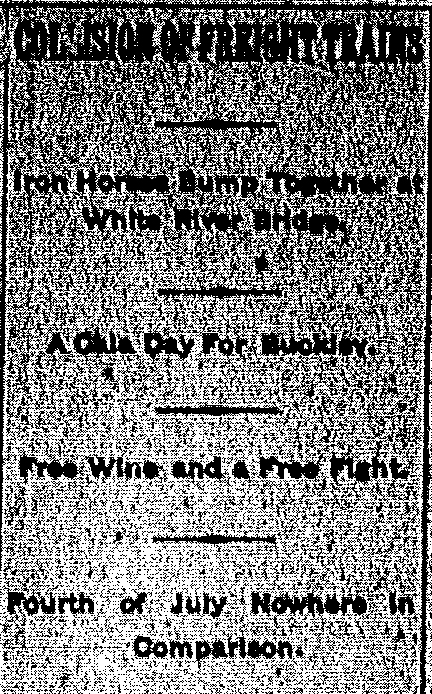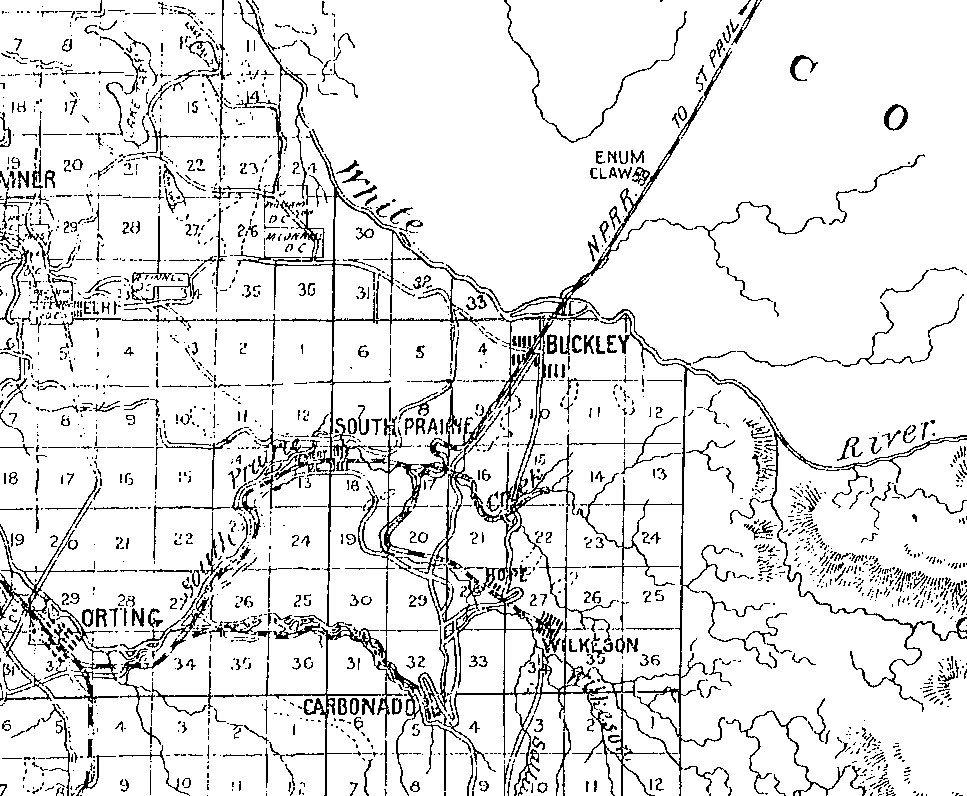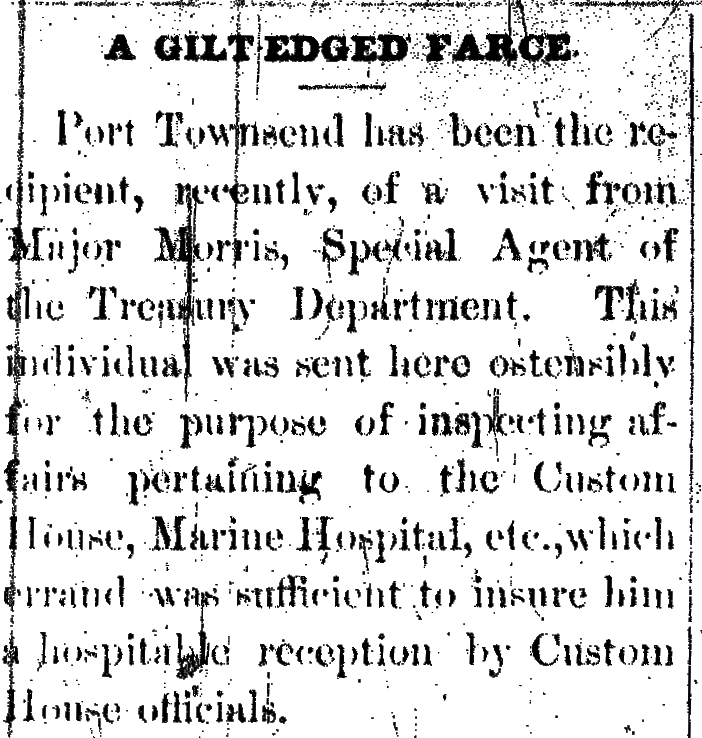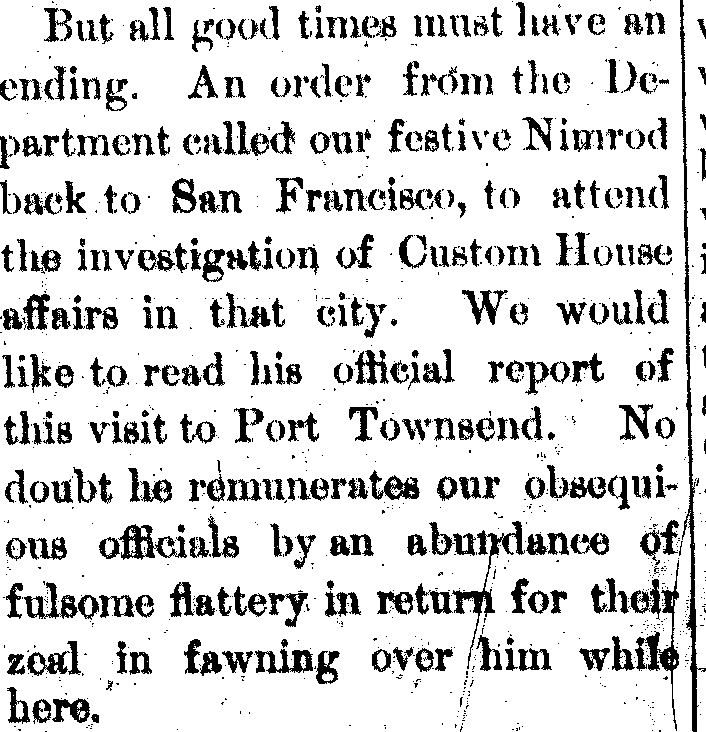From the desk of Steve Willis, Central Library Services Program Manager of the Washington State Library:
Somewhere long ago I read a quote from the late great Larry Fine, the “Stooge in the Middle” of the always underestimated Three Stooges. He said something to the effect that real comedy always works in threes. Either in timing, or in personalities. Library cataloger’s note: I wonder if this where the AACR2 “rule of three” came from– a Stooges fan in the rulemaking woodwork?
Anyway.
The following story is certainly a candidate for Larry Fine’s Rule of Three. In fact, one figure in this story is even called an “amateur comedian.” The microfilm reel grabbed at random this week unearthed this story from The Seattle Daily Times, Feb. 2, 1907:
JOHN ANDREW NINK ARRESTED
Well-Known Character’s Attempt to Whip Joe Schlumpf Ends Disastrously for Himself and Ally, Matt Dee.
Latter Offered $20 to Pummel the Cigar Merchant and Lands on His Head in the Middle of the Sidewalk.
“John Andrew Nink, for many years a familiar figure on the streets of Seattle, faultlessly dressed in silk hat and fashionable black clothing, a striking contrast to his snow white hair and mustache, spent the greater part of last night in the receiving cell of the city jail, all because he wanted to whip Joe Schlumpf, the cigar merchant.”
“John Andrew Nink, a good judge of beer, a gentleman of leisure and a man with a notoriety that many persons would not be fond of, was shocked when Jailer John Corbett began to search him, just as he would any other prisoner.”
“‘Why, it’s an outrage,’ declared the gentlemanly John Andrew Nink. ‘I’ll not stand for it. I’ve got enough money to buy you all and sell you again. Lock me up in jail? Well, I guess not.'”
“‘If you’ve got $20 bail money to insure your appearance in court to answer a charge of being drunk and disorderly, I’ll let 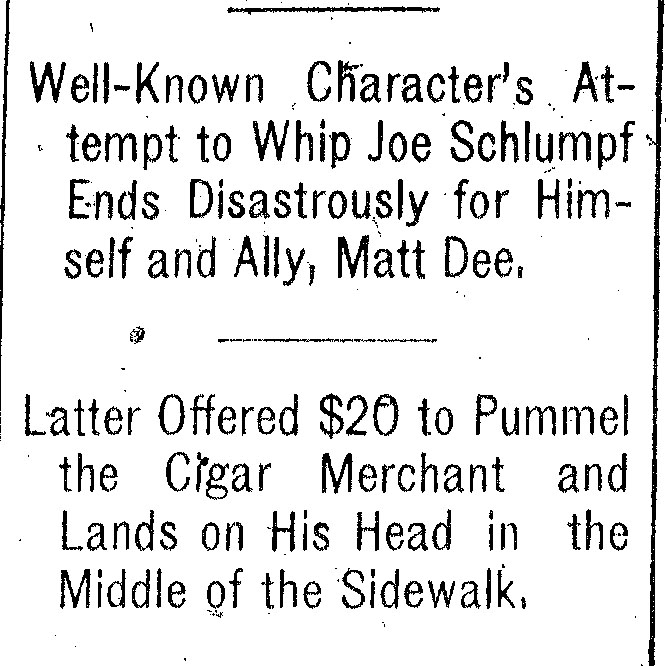 you go,’ replied Capt. Laubscher.”
you go,’ replied Capt. Laubscher.”
“John Andrew Nink couldn’t raise the $20, although he dug deep into his broad trousers. Against his protestations and weak resistance, Jailer Corbett led him off to the receiving cell. All night long he paced up and down the cell while the hoboes guyed him about his tall hat which he refused to remove. At 8 o’clock this morning he was allowed to telephone to a well known woman who said she would send up the money for his bail.”
Hires Man to Whip Schlumpf.
“The gentleman prisoner had a grievance against Joe Schlumpf. He wanted to whip Joe but the big German cigar merchant looked too stately for Nink. He believed in nerving himself and therefore took on a few glasses of tonic. Then he met Matt Dee, a West Seattle man, who has figured in more rows in the last few years than he has fingers and toes. Nink told Dee his troubles. Dee sympathized with him and offered to help him.”
“‘I’ll give you $20 if you’ll whip Schlumpf for me,’ said Nink.”
“Matt Dee used to have plenty of money and there was a time when $20 wouldn’t tempt him, but when he saw $20 coming so easily he took up the proposition. Nink and Dee had a few more drinks and Dee started for Joe Sclumpf’s cigar store in the Butler Block.”
“‘What you been a doin’ to Nink?’ angrily demanded Matt Dee of Joe Schlumpf.”
“There was no answer. Dee looked at Joe and Joe looked at Dee.”
“‘Well, I’ve come over here to give you a lickin’,’ said Dee as he started for the show case.”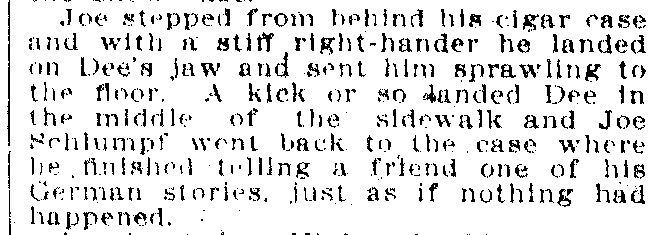
“Joe stepped from behind his cigar case and with a stiff right-hander he landed on Dee’s jaw and sent him sprawling to the floor. A kick or so landed Dee in the middle of the sidewalk and Joe Schlumpf went back to the case where he finished telling a friend one of his German stories, just as if nothing had happened.”
“Dee hunted up Nink and told him what he had got.”
“‘You’re not game,’ said Nink to Dee. ‘I’ll go over there and wallop that Dutchman myself.'”
“Nink started across the street, followed closely by Dee. The latter, however, decided to wait on the outside. Nink entered the cigar store and big Joe Schlumpf saw him coming.”
“‘Back for trouble, are you?’ yelled Joe, who by that time had decided that he was tired of Nink and his trouble.”
“‘Yes, I’m back and we’ll settle it right here.'”
“Nink started for Joe, but the amateur comedian was too quick for the angry man, and slapping him not ungently on the side of the cheek he sent Nink to the mat, then pushed him out of the door with his No. 12 foot.”
“Nink and Dee had another consultation but they agreed that no more attacks would be made. Nink said goodbye to Dee and the latter wandered up the street. Nink’s humor was not improved and he went deeper into the cups in a nearby saloon, saying he had a gun and was going to get somebody.”
“Not desiring any bloodshed in the thirst emporium, a bartender was sent out for an officer. Patrolman Charles Dolphin responded. He asked Nink if he had a gun. The latter replied that he had not but if he had one he would use it right there.”
“Unawed by the tall silk hat and the fine clothes of Nink, Officer Dolphin put a firm hand on his shoulder and told him he was under arrest.”
Gay With a Policeman.
“‘Are you a policeman?’ asked Nink, who was probably unable to see Dolphin’s uniform and his star.”
“‘Well, I make a noise like one,’ responded Dolphin.”
“There was no more parleying. A wagon call was sent in and Nink went to jail in the private conveyance furnished at the expense of the city.”
“About four years ago Nink was shot in the back while walking along Second Avenue near Union Street. For weeks he was in the hospital and for a time it was thought he would die. It was ascertained beyond all question that a young man had shot Nink because the latter had interfered in family affairs. Nink refused to prosecute and no arrest was made.”
“Nink says he is an insurance agent, but so far as the police know he has not increased business perceptibly in Seattle.”
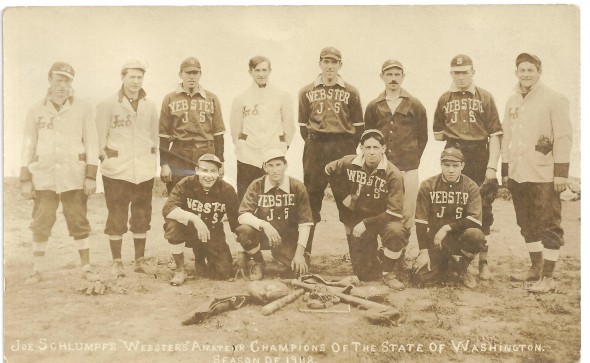
“Joe Schlumpf’s ‘Webster’s’ Amateur Champions of the State of Washington. Season of 1908.” Schlumpf himself is possibly the man standing on the far right. Photo courtesy of Northwest sports historian David Eskenazi.
Nink had a knack for getting into trouble. A few years before the above incident, on an evening in November 1903 indowntown Seattle, he was shot in the back apparently by someone who objected to the romantic overtures Nink was bestowing upon a wealthy widow. A Morning Olympian (Nov. 13, 1903) account of the shooting described Nink as “a well known character in the city [Seattle]. He always dresses well and for years has worn a silk hat, which made him quite a prominent figure on the street.”
Nink died in Seattle Jan. 22, 1917 at the age of 65.
Mark “Matt” Dee, born in New York, raised in Boston, and sent to Ireland for his schooling always said he came home to the U.S. not with an education but “returned with a brogue only.” At age 12 he went to sea, and claimed that at some vague date he married the actress and early film star Blanche Walsh (1873-1915), an assertion that cannot be verified by any source except Dee himself.
Dee also included being the manager of boxer John L. Sullivan (1858-1918) for a three-year stint in his resume, as well as having a part in the early career of “Gentleman Jim” Corbett (1866-1933). Again, outside sources to verify these claims don’t come easy.
After a brief time in the mining camps of Montana, Matt moved to Seattle around the turn of the century. He settled in West Seattle where he became known as “Daddy Dee of Alki.” Dee became a very active member of the Republican Party and was known for the practice of taking a dip in Puget Sound on a daily basis. He died in Seattle July 1, 1931 at the age of 73.
Although called a German and Dutchman in the article, Joseph Schlumpf was born in Wisconsin. He arrived in Seattle ca. 1890 and was well known as a cigar merchant. Apparently he was politically ambitious, but had difficulty getting elected to office, although he did serve one term on the Seattle City Council, 1910-1911, representing the East Capitol Hill district.
Perhaps Joe Schlumpf’s real legacy in Seattle was his role as an organizer for one of the early baseball clubs. In this regard he could be considered a visionary.
Schlumpf moved to Hollywood, California in 1919. He died there July 16, 1941 at the age 73. I wonder if he ever had a chance to meet Larry Fine?






